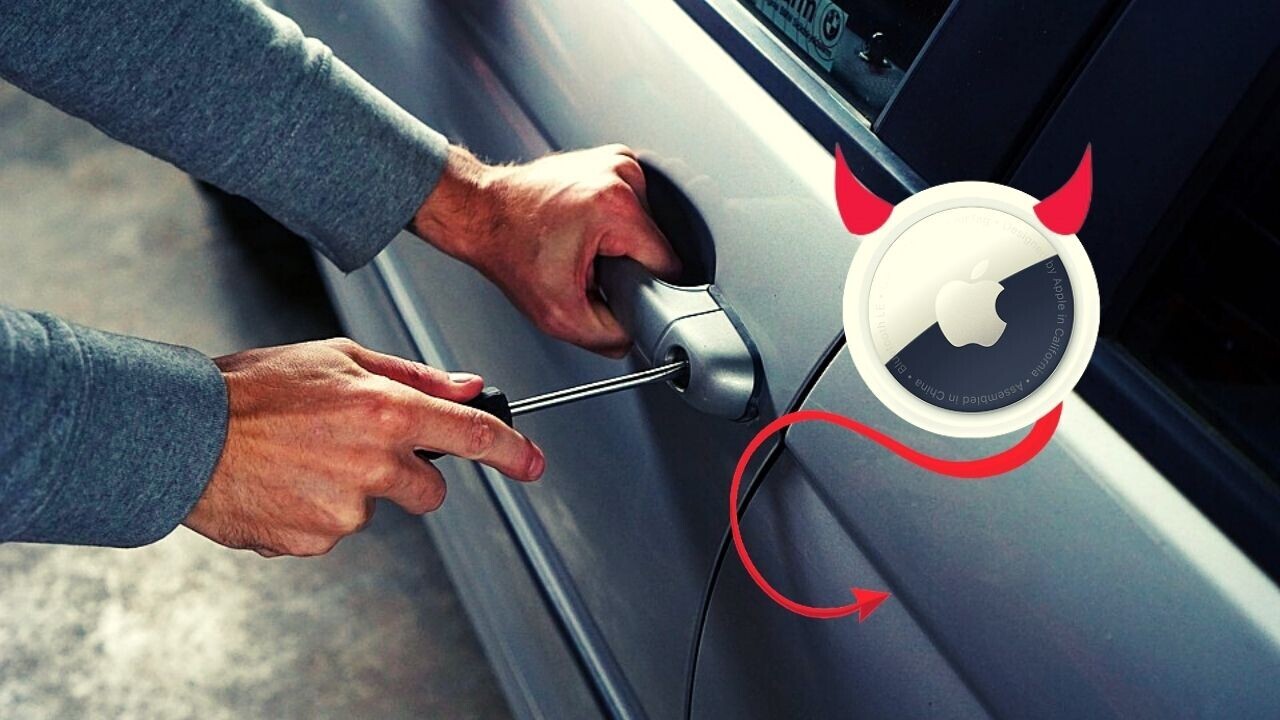
When Apple launched its AirTags in June, I got rather excited — finally, I could connect my iPhone with a device to track my keys and wallet. As someone who constantly looses their stuff (yes, I know, shame on me), I was easily sold.
But did I ever stop to think whether someone could use an AirTag to steal my car? Nope, but apparently that’s a thing now.
Last week, the Canadian police announced that criminals have been using a new method to track and steal high-end vehicles: yep, AirTags.
In fact, in the last three months, officers have identified five such incidents across the York Region in Ontario.
“The Big Job”
According to the police investigation, the car thieves are using a five-step “Grand Theft Auto” plan.
Step 1: They place the AirTags in out-of-sight areas of the target vehicle while it’s parked in public places, such as malls and parking lots.
For example, they can be placed in this inconspicuous power socket.

Step 2: Then they can track the vehicle to the victim’s residence.
Step 3: They typically use screwdrivers to enter the car’s driver or passenger door — while making sure not to set off the alarm, of course.
Step 4: Once inside the car, they connect a reprogramming device (I don’t know what kind, but I found a lot on Amazon) to the onboard diagnostics port below the dashboard, and reprogram the vehicle to accept a key the thieves have brought with them.
Step 5: They start the vehicle and drive away. Say goodbye to your car.
Damn you, AirTags?
Not necessarily.
Before you go an an angry rant against Tim Cook, remember it’s not like the AirTags are the world’s first location tracking device that can connect with your phone. Criminals have had the tools for a while now.
If anything, AirTags are actually less useful for nefarious purposes. To avoid potential misuses, Apple offers two safety features to alert you of unattended (as in, not your own) AirTags around you.
First up, the AirTags beep at random intervals between eight and 24 hours if they’re separated from their owner.
Secondly, you can actually detect a “lost” AirTag traveling with you, but only if you have an iPhone — at least for the time being.
But while the features are good, they aren’t bulletproof — as some unfortunate Canadian car owners have found out.
So yes, Apple could a do a bit more to secure the AirTags’ privacy, especially given the size and scale of the Find My network they’re using.
So… damn you, technology?
To be fair, the use of technology for criminal actions isn’t a specific Apple problem. The same way you can’t blame your email provider if you fall for a phishing scam.
The thing is, that the more advanced tech we get, the more creative criminals become to stay one step ahead.
I mean, think about it: if you were the victim of an AirTag car theft, you would have lost your car with the help of a device that’s designed to help you find things. There’s a poetic irony in there.
Still, it’s not like we can live in a world without technology, so we might as well take some precautions when it comes to tech-related theft instances — for example, of our cars.
What you can do to protect your car
The Canadian police listed some tips vehicle owners could follow to make sure that they don’t fall victims of similar car thefts.
You could try very simple things like parking your car inside a locked garage or inspecting it regularly for any suspicious devices. You could even take it one step further and install a lock on the data port to block access to outsiders.
Now could I be bothered to do those things? Probably not. But better safe than sorry, I guess.
Get the TNW newsletter
Get the most important tech news in your inbox each week.





